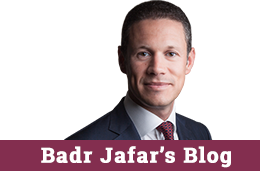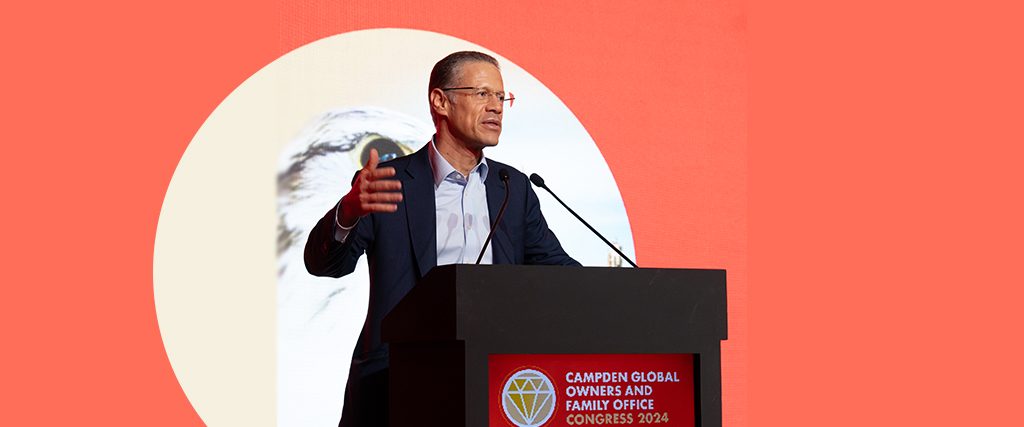Making the Gulf Business Environment More Transparent
Corporate governance has been a misunderstood challenge for many Gulf family-owned businesses, but the tide is turning as a new generation prepares to take control of more than $1 trillion (£665bn) in assets.
Gulf businesses are experiencing perhaps their most dramatic shift in psyche ever. As thousands of family firms, accounting for as much as 90 per cent of some states’ economies, prepare to handover the reigns to the new generation in the coming decade, they are upping the ante on transparency and accountability.
The Pearl Initiative, a private sector-led, non-profit organisation, has been at the forefront of helping companies improve their business practices and convince them that good corporate governance is profitable.
“[For decades], private companies, perhaps because they were not expected to pay taxes, didn’t really see the point in publishing reports or accounts, so there was virtually no transparency or resulting accountability,” says UAE-based businessman Badr Jafar, who is the founder of the Pearl Initiative.
“The regulations haven’t changed that much, except possibly for publicly-listed firms, but what has changed is the increased sense that there is a strong business case behind good governance, and that’s really what the Pearl Initiative has been driving.”
Part of the impetus for the initiative has been addressing one of the region’s greatest challenges: creating an estimated 200 million jobs in the next two decades – just to keep the current youth unemployment level, which is already high at 30 per cent, stable.
While there is much emphasis on start-ups, Jafar, who is also CEO of Crescent Enterprises, a UAE-based multinational with 20 subsidiaries across five industry verticals, argued existing firms were crucial to meeting the jobs challenge.
“Where I don’t think there’s enough work being done is protecting and nurturing existing businesses, including family businesses – allowing them to thrive in order to create more opportunities for our youth,” he said.
“We have over a trillion dollars of assets that are going to be passed, predominantly from second to third generation, over the next 10 years alone. The transition from the siblings’ partnership to the cousins’ consortium is traditionally where most problems occur, and we simply don’t have the governance protections in place to protect that huge transfer of wealth.
“Don’t get me wrong, it’s great to create new businesses through start-ups and encouraging entrepreneurship, but if we don’t protect our existing businesses and allow them to thrive, then we really have no hope in creating stable economies and the healthy societies that rely on them.”
Scores of family businesses have participated in the organisation’s programmes and forums, and the Pearl Initiative has partnered with the UN Office of Partnerships since its inception in 2010, and more recently the UN Global Compact. While the Pearl Initiative currently only runs programs across the Gulf, many multinationals operating within the region are also joining hands with local companies, and that, Jafar said, was important.
“It’s extremely important [that multinationals] don’t have a double standards approach to corporate governance, whereby the sort of rules that they adhere to in their own jurisdictions are different to the ones they set for themselves in other markets,” he said.
While the Gulf business environment is becoming more transparent, progress has not been fast enough, according to Jafar.
“[The aim is to] move away from seeing it as a burden to a huge opportunity. And that shift in mindset is one that I’m seeing, but just not fast enough,” he said.
“We simply don’t have the luxury of time… if we wait 10 years for this to happen gently and slowly, then we’ll witness huge destruction of value.”
Damage already is occurring is some places. In Saudi Arabia, for example, courts are clogged with family-related disputes, Jafar said.
“You’ll find the family business courts completely overwhelmed with governance-related disputes, and some businesses falling apart as a direct consequence. When you have to go to court to resolve a dispute, the family is already fractured; it’s going to be very difficult to build that trust back up again,” he said. “Imagine the result on the economy if you have 90 per cent of the GDP potentially fractured.
“It’s crucial for these family businesses to adopt [good corporate governance] because they are the lifeblood of the region’s economies.”
As is the case globally, Gulf firms also are increasingly embracing corporate social responsibility (CSR), but Jafar warned community programmes did not make up for corporate accountability.
“Corporate accountability transcends social responsibility, it goes much more to how companies interact more broadly with all of their stakeholders and embed those values into their ethos; and it’s about generating trust – not buying loyalty – which is a much more authentic way of connecting with stakeholders.”
More companies also are recognising the potential profitability in addressing socio-economic challenges.
“It’s about using your entrepreneurial intrigue, as well as passion and skills, to generate business models that address socio-economic challenges that are relevant to one’s region or country,” Jafar said.
“And that doesn’t have to be a trade-off; it’s not about deciding how much money goes to profit [and] how much goes to social impact – your business will have so much more potential to generate profit more sustainably over a longer period of time if you’re properly addressing socio-economic challenges.”
It is not only start-ups solving these challenges – some of the world’s greatest brands are finding themselves forced to adapt to changing markets.
“You’re seeing this almost existential threat to some of the biggest brands today, like the Coca-Colas of this world; [They’re asking], ‘are we really producing something that society needs today?’,” Jafar said, referring to consumers’ increasing preference for sugar-free drinks. “They’re having an identity crisis right now, even the fast food chains. Pepsi, [for example], is buying up drink brands that are more appealing to the habits of generation Y because it sees this threat.
“This is what I think true social entrepreneurship is. It doesn’t have to be practiced only by budding entrepreneurs or start-ups; it can be practiced by big businesses. The bravest thing, and the most difficult thing for a large established company that’s had a product for many years to do, is say: ‘Hey, you know what, maybe the product’s not relevant [any more]; habits change, let’s actually provide something society needs’.”
Jafar and his colleagues applied this theory in his family business, Crescent Petroleum, the only firm of more than 20 in Kurdistan, Iraq, that is exploring for natural gas, rather than oil.
“The amount of carbon emissions reductions as a result of our investment in displacing liquid fuel in power generation by natural gas is huge,” he said. “In addition, and unlike with oil, the multiplier effect of natural gas production and use within a country is huge, from generating much-needed electricity to spurring local industry and jobs.
“Would it have been easier for us to just go after the oil and rely on exports? Totally. All the companies that did made their money back long ago; we believed in what we were doing, not just economically, but also the social imperative behind that business decision.”
As the employment market becomes increasingly competitive, identifying and meeting socio-economic challenges may well be the most fitting key to unlocking hundreds of millions of desperately needed jobs. And without the progressive corporate governance ethos now considered fundamental to protecting and enhancing economic growth, the Middle East will find it increasingly difficult to create these opportunities for its bulging youth population.
As featured in The Telegraph on 1 December 2015.

 Tweets by @BadrJafar
Tweets by @BadrJafar




